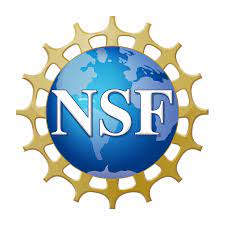Revised Proposal and Award Policies and Procedures

The National Science Foundation (NSF) Proposal & Award Policies & Procedures Guide (PAPPG) is the source for information about NSF’s proposal and award process. Each version of the PAPPG applies to all applications submitted while that version is effective. PAPPG version NSF 23-1 (PAPPG 23-1) is applicable for proposals due or submitted on or after January 30, 2023.
Resources
Changes in Systems for Proposal Prep & Submission
NSF made a number of system updates in Research.gov, FastLane, and Grants.gov for consistency with the implementation of PAPPG 23-1 for proposals due or submitted on or after January 30, 2023.
Research.gov Requirement
New supplemental funding requests must be submitted in Research.gov regardless of the system (Research.gov, FastLane, or Grants.gov) used for proposal submission.
In addition, Grants.gov remains a submission option for the majority of other NSF proposals.
FastLane Decommissioning
New FastLane proposal preparation and submission functionality has been decommissioned. Limited FastLane proposal capabilities such as proposal file updates and budget revisions will remain available for FastLane-submitted proposals until September 29, 2023. This includes proposals submitted to NSF via Grants.gov on or before November 18, 2022.
strong>Refer to the FastLane Decommissioning page for additional information.
Resources
- About Proposal Preparation and Submission
- About Supplemental Funding Request Preparation and Submission
- Research.gov Proposal Preparation Demo Site
- Research.gov Supplemental Funding Request Demo Site
- Fall 2022 Proposal Submission Modernization Update recording including a demo of Research.gov proposal preparation features.
Changes in Other Support and Biographical Sketch
NSF recently updated the Current and Pending (Other) Support and Biographical Sketch areas of its proposal process and these formats will be available through October 22, 2023. After this date, the new SciENcv format will replace the current application process. Key changes are summarized below for each requirement.
Current and Pending (Other) Support
- Corrected the Status of Support radio button
- Corrected fonts and margins for compliance with NSF policy
- Included the revision date (rev. 01/19/2023) at the bottom of each page
Biographical Sketch
- Corrected margins for compliance with NSF policy
- Included the revision date (rev. 01/19/2023) at the bottom of each page
Resources
NSF and NIH hosted a webinar to discuss the revised formats and demonstrate the SciENcv. The webinar recording will be available at https://nsfpolicyoutreach.com/.
UNC-CH Plan for Safe and Inclusive Working Environments for Off-Campus or Off-Site Research
In PAPPG 23-1, a new requirement exists whereby for each proposal submitted on or after January 30, 2023, the Authorized Organization Representative (AOR) must certify that the organization has a plan in place that describes how the following types of behavior will be addressed:
- Abuse of any person, including, but not limited to, harassment, stalking, bullying, or hazing of any kind, whether the behavior is carried out verbally, physically, electronically, or in written form; or
- Conduct that is unwelcome, offensive, indecent, obscene, or disorderly.
The UNC-CH NSF Plan for Safe and Inclusive Working Environments for Off-Campus or Off-Site Research is available on the Office of Sponsored Programs Forms and Tools webpage in the Proposal Related section.
UNC Resources
- UNC-CH NSF Plan for Safe and Inclusive Working Environments for Off-Campus or Off-Site Research
- EOC General Brochure
- Employee Disability Accommodations Brochure
- Quick Reference Guide for Incidents of Sexual and Gender-Based Discrimination, Sexual Harassment, Sexual Assault or Sexual Violence, Interpersonal (Relationship) Violence, and Stalking
- Comprehensive Resource Guide for Incidents of Sexual and Gender-Based Discrimination, Sexual Harassment, Sexual Assault or Sexual Violence, Interpersonal (Relationship) Violence, and Stalking.
RCR Training to Meet NSF Requirements
Responsible Conduct of Research (RCR) is broadly defined as the application of best practices in proposing, performing, or reviewing research, or in reporting research results regardless of the scientific or scholarly discipline. NSF requirement for RCR emerged from implemented Section 7009 of America Creating Opportunities to Meaningfully Promote Excellence in Technology, Education, and Science (COMPETES) Act (42 U.S.C. 1862o-1).
In PAPPG 23-1, the RCR requirement was amended to include faculty and other senior personnel who will be supported by NSF to conduct research. This means that NSF expects institutions to be able to verify that students (undergraduates and graduates), postdoctoral researchers, faculty, and other senior personnel who receive NSF funds (support from salary and/or stipends to conduct research on NSF grants) will obtain RCR training.
UNC Resources